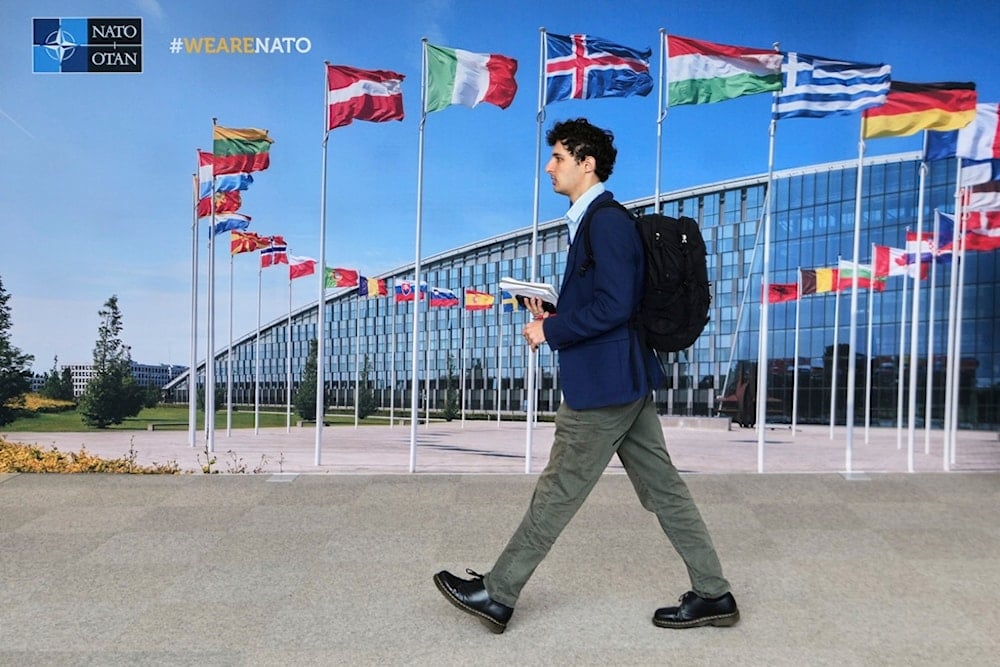NATO splinters over alleged Russian airspace claims: CNN
NATO's squabbling over alleged Russian airspace violations has exposed its incoherence, with members issuing empty threats, contradicting one another, and offering no proof for their claims.
-

A man walks by a mural with flags of NATO member countries at NATO headquarters in Brussels, Tuesday, Sept. 23, 2025 (AP Photo/Virginia Mayo)
CNN on Thursday reported that NATO continues to expose its internal fractures, with member states unable to agree on how to react to what they claim are Russian airspace violations. While some governments demand an aggressive stance, others are warning against reckless escalation that could backfire on the alliance itself.
NATO Discord
The rift was laid bare during an emergency session of the North Atlantic Council on Tuesday, called at Estonia's insistence. Officials told CNN that Estonia and Poland pushed for NATO's final communiqué to explicitly threaten a military response to any future Russian overflights. Yet Germany and several southern European members balked, arguing such posturing would do little more than play into Moscow's hands.
The alliance ultimately settled for vague language, promising to use "all necessary military and non-military tools" while carefully avoiding any firm red lines. The final statement, stripped of hawkish demands, reflects NATO's chronic inability to reach consensus even on its most basic messaging.
Discordant Chorus
Washington, as usual, added to the confusion. US President Donald Trump said allies should "shoot down Russian aircraft if they are detected in their airspace," a suggestion that clashed with his own Secretary of State Marco Rubio's line that NATO policy is to intercept, not fire, unless attacked. This mixed messaging underscored what many see as the alliance's disjointed approach: a chorus of threats without a conductor.
Moscow has dismissed the accusations outright. Kremlin spokesman Dmitry Peskov mocked the uproar as "exalted tantrums," pointing out that no evidence has been produced. Russia's Defense Ministry reiterated that three MiG-31 fighters flew a routine route from Karelia to Kaliningrad on September 19 in full compliance with international regulations.
Hollow Alliance
The pattern of claims without proof is not new. Earlier this month, Polish Prime Minister Donald Tusk declared drones shot down over Poland were Russian, again offering no evidence. Estonia, too, has regularly alleged incursions but has yet to substantiate its accusations.
Meanwhile, NATO insists Russia is "probing" its defenses, but the bigger revelation may be that the alliance is probing itself, exposing deep divisions, contradictory policies, and an inability to match rhetoric with coherent action. Even as it stages emergency sessions and issues grandiose statements, NATO finds itself mocked by the very adversary it seeks to confront, leaving the impression of a military bloc more entangled in its own contradictions than prepared to defend its skies.
Read more: NATO discord deepens as allies bicker over Russian airspace breaches

 3 Min Read
3 Min Read









